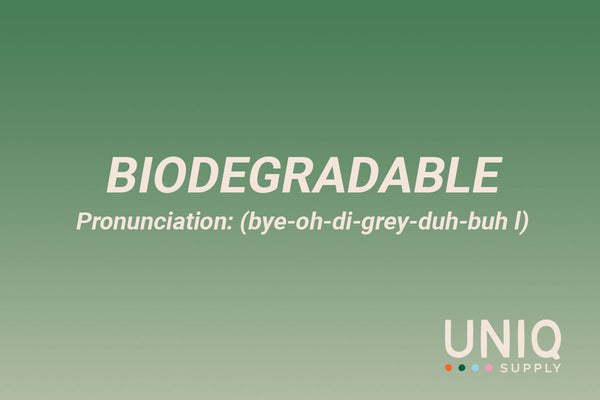PRONUNCIATION: (bye-oh-di-grey-duh-buh l)
Biodegradable refers to materials that can be broken down into natural substances (like carbon dioxide, water, and biomass) by microorganisms such as bacteria and fungi under specific conditions (like the presence of oxygen, moisture, and appropriate temperature). It's important to note that "biodegradable" doesn't specify a timeframe, and decomposition can take weeks, months, or even years. For foodservice disposables, this often pertains to items like plates, cups, cutlery, and containers made from materials like bagasse (sugarcane pulp), bamboo, or PLA (polylactic acid), which are designed to decompose under specific composting conditions, often industrial composting rather than home composting. It's crucial to differentiate biodegradable disposables from conventional plastics, which persist in the environment for much longer.

